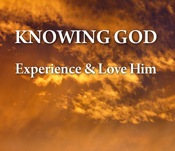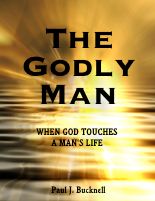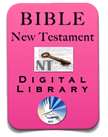

Learn how to make inductive Bible study questions!
Titus 1:10-16
Inductive Bible Study Questions
Paul Bucknell
Ramesh Reddy
_________________________
Inductive Bible Study Questions: Introduction | Book study
Study Questions: Titus 1:1-4 | Titus 1:5-9 | Titus 1:10-16
Titus 2:1-10 | Titus 2:11-15 | Titus 3:1-8 | Titus 3:9-15
Titus Outline | Titus Map | Titus Commentary (see below)
Intro to Titus | Titus 1:1-4 | Titus 1:5-9 | Titus 2:1-2 | Titus 3:9-15
Purpose
Titus 1:10-16: Inductive Bible Study Questions provides colored observation, interpretation and application questions for Titus 1:10-16 so that one can become familiar with the different kinds of study questions that comprise a good study. This is an excellent resource for small groups or adult Sunday School on learning the basic skills needed for inductive Bible studies.
Titus 1:10-16 - the Text
10 For there are many rebellious men, empty talkers and deceivers, especially those of the circumcision 11 who must be silenced because they are upsetting whole families, teaching things they should not teach, for the sake of sordid gain. 12 One of themselves, a prophet of their own, said, “Cretans are always liars, evil beasts, lazy gluttons.” 13 This testimony is true. For this cause reprove them severely that they may be sound in the faith, 14 not paying attention to Jewish myths and commandments of men who turn away from the truth. 15 To the pure, all things are pure; but to those who are defiled and unbelieving, nothing is pure, but both their mind and their conscience are defiled. 16 They profess to know God, but by their deeds they deny Him, being detestable and disobedient, and worthless for any good deed.
Teaching
We can learn from Paul’s instruction to Titus regarding problems in the churches in Crete how to handle crises that occur in our churches today.
|
Approach Questions for Titus 1:10-16
What do you think the biggest danger our church or the church at large is facing right now?
_________________________
Observation, Interpretation and Application Questions
1. Danger in the churches
-
List the dangers that Paul asks Titus to be aware of in the churches that he is leading?
-
Why is Paul singling out the circumcision group from the rebellious men, empty talkers and deceivers?
-
Out of the dangers listed in the passage, what is the danger that you experienced the most?
-
-
-
What is the cause and effect relationship you see in verses 10-11?
-
What does the prophet say about his culture (Cretan) in verse 12?
-
Who do you think ‘a prophet of their own’ refers to in verse 12?
-
How has your culture negatively influenced you (1:12)?
-
-
2. The Action Plan
-
What action plan does Paul give Titus to get rid of the dangers that the Cretan churches are facing?
-
What does rebuke mean?
-
How comfortable are you to rebuke someone when they are doing something wrong? Why or why not?
-
-
-
What does Paul hope Titus to accomplish through the rebuke (13-14)?
-
What might Jewish myths refer to?
-
When you hear this phrase ‘sound in the faith’, what do you think of?
-
What have you seen in your lifetime that validates verse 15?
-
What is the danger claiming to know God but not living it out (1:16).
-
What does it mean to proclaim the truth and live the truth specifically in your life?
-
-
Summary
- Realize the dangers that the church back then faced and better understand dangers that the church faces today. We need to be willing to stand up for the truth even though it might be tough.
=> Next: Titus 2:1-10 inductive Bible study questions








